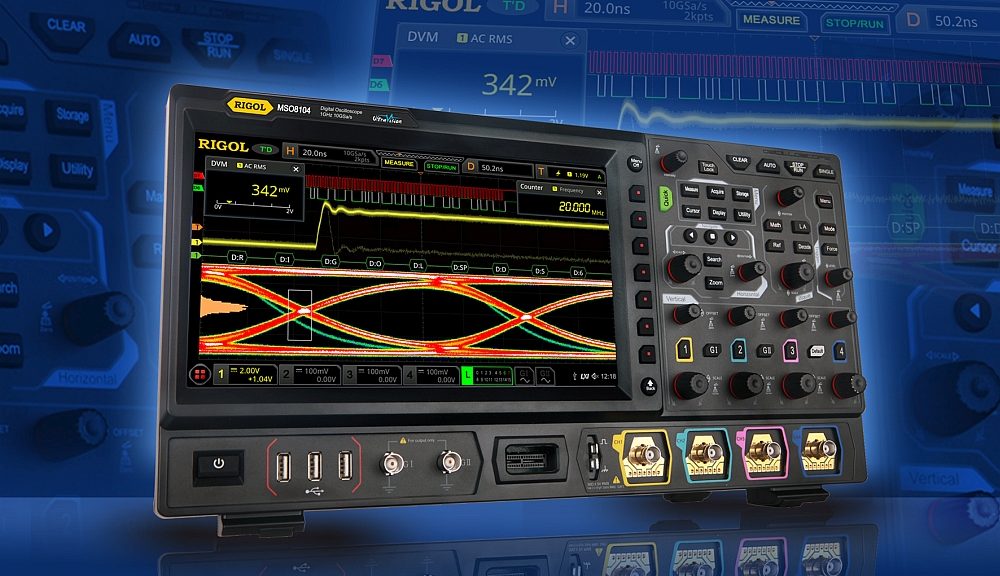- Rigol has made a series of improvements to its MSO8000 series oscilloscopes with the latest firmware release offering new features.
The MSO8000 series includes several models offering bandwidths of 600 MHz, 1 GHz and 2 GHz.
Equipped with 4 analog and 16 digital inputs (optional), these oscilloscopes sample signals at a maximum rate of 2.5 GS/s per channel (5 GS/s on two channels and 10 GS/s on one channel).
When using the web control function, the screen refresh rate has been increased, which improves the smoothness of the display. For example, to create the field trigger, it is now possible to simply set the required field with the mouse using the web control function.
The 10.1-inch color touchscreen driver has evolved to improve usability. The display quality of the signal trace in XY mode has been optimized as a result.
Rigol has implemented the math application in such a way that the channel used for this purpose can be switched off so that only the math trace (e.g. the FFT with up to one million samples) is visible on the screen.
The already available decoding options have been extended with the function for decoding the CAN FD bus.
The MS0800 oscilloscopes have a memory of 125 Mpts per channel (250 Mpts on two channels and 500 Mpts on one channel). Using the recording function, the memory depth can reach 900 Mpts per segmentation (for example 9 frames of 100 Mpts each).
These instruments have functions for measuring the eye diagram in real time and for measuring jitter characteristics. The display of the jitter evolution can be combined with the use of the histogram for a more in-depth numerical analysis.
The oscilloscopes integrate a voltmeter, a frequency counter and an optional 2-channel arbitrary function generator (200 MS/s, 14 bits, 25 MHz).
Various communication interfaces are available such as USB host, USB device, HDMI, LAN, USB GPIB (with adapter) and Aux Out.
A range of probes adapted to various applications is also offered such as the 2.5 GHz active differential probe (PVA7250).






